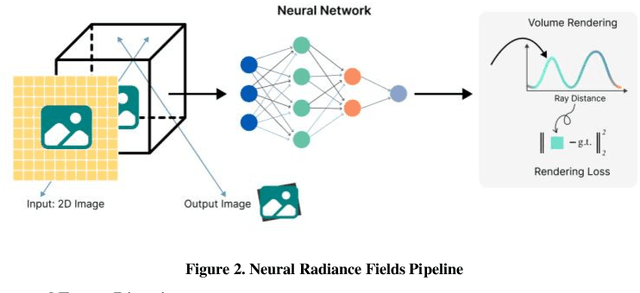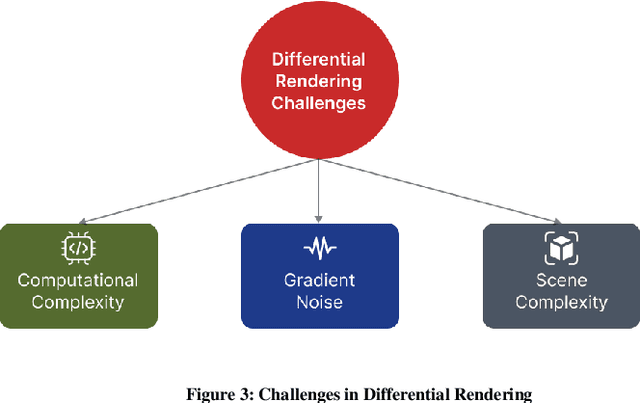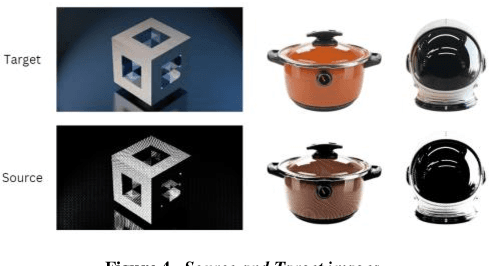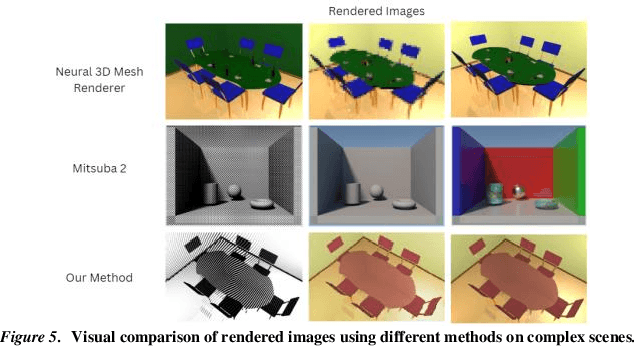Physics Based Differentiable Rendering for Inverse Problems and Beyond
Paper and Code
Dec 11, 2024



Physics-based differentiable rendering (PBDR) has become an efficient method in computer vision, graphics, and machine learning for addressing an array of inverse problems. PBDR allows patterns to be generated from perceptions which can be applied to enhance object attributes like geometry, substances, and lighting by adding physical models of light propagation and materials interaction. Due to these capabilities, distinguished rendering has been employed in a wider range of sectors such as autonomous navigation, scene reconstruction, and material design. We provide an extensive overview of PBDR techniques in this study, emphasizing their creation, effectiveness, and limitations while managing inverse situations. We demonstrate modern techniques and examine their value in everyday situations.
 Add to Chrome
Add to Chrome Add to Firefox
Add to Firefox Add to Edge
Add to Edge